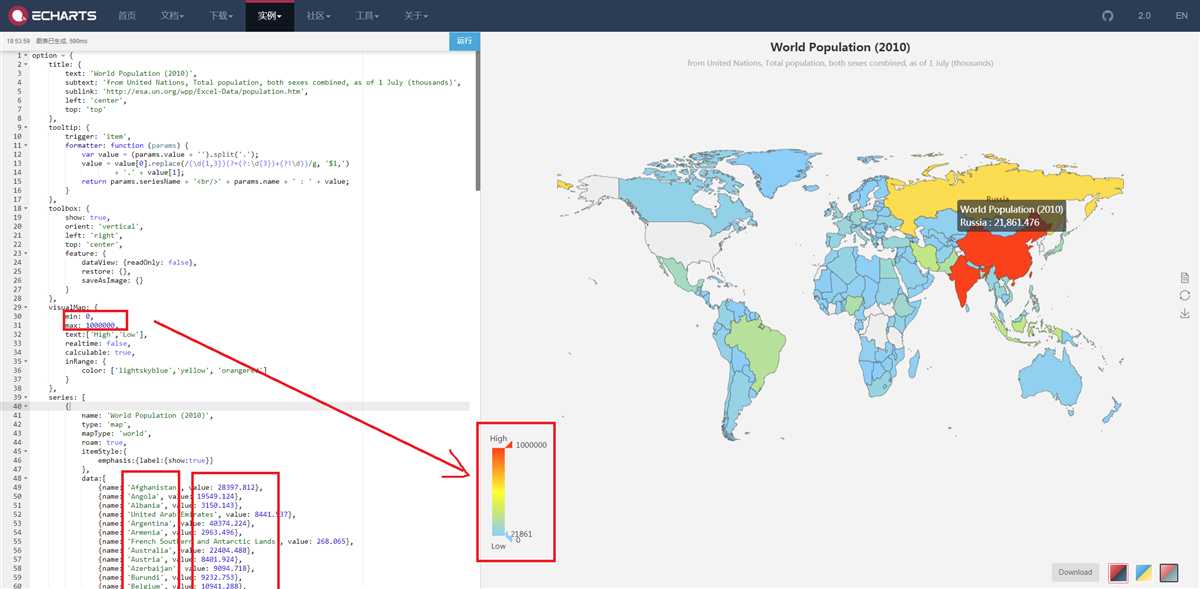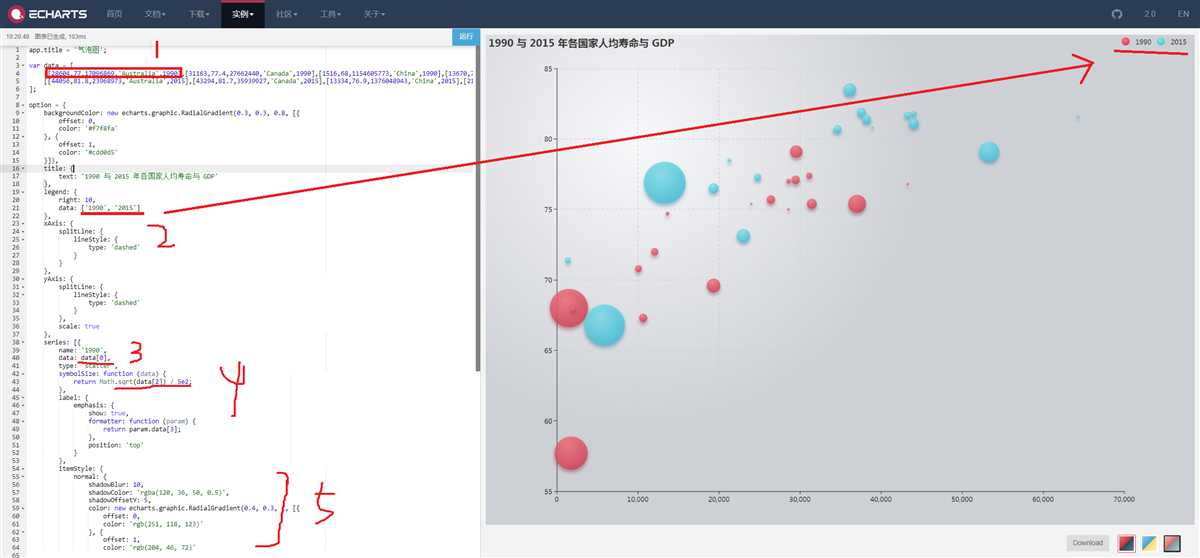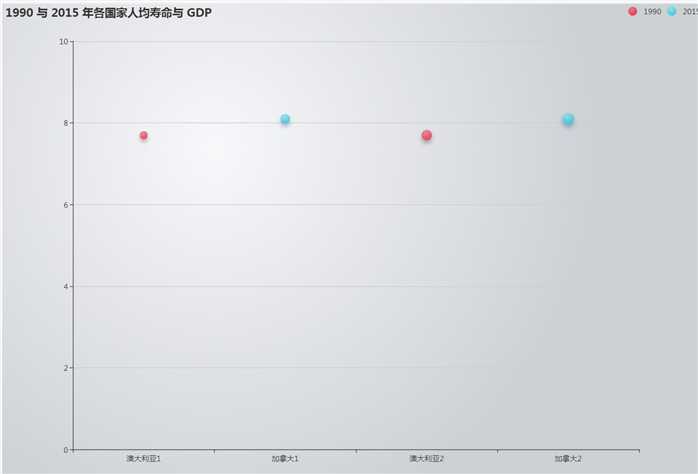上一篇文章介绍了:堆积柱状图、扇形图、嵌套环形图,现在来介绍一下:世界地图和气泡图
1.世界地图
http://echarts.baidu.com/examples/editor.html?c=map-world-dataRange

这个就不多做介绍了,大家看图就可以了,颜色越深表示value越大,白色表示data中没有这个国家。
2.气泡图

按照这张图的意思来解释图中的1 2 3 4 5
1.[x轴数据(无需定义范围),y轴数据(无需定义范围),气泡大小,对应的国家(鼠标放上去才会显示),年份]
2.年份有哪几个,对应的下面就有几个serie来定义
3.1990年对应的是第一行,即data[0],这里不是以上面1中的第5个元素来确定属于那一年的
4.这里的data[2]是指1中的data,注意看函数哦,这里是数字太大进行缩减。
5.对属于1990气泡颜色的定义
这张图可以改成这样:

需要做的如下:
改变X轴 Y轴数据类型,添加对应的值,代码如下
app.title = ‘气泡图‘; var data = [ [[‘澳大利亚1‘,7.7,150,‘Australia‘,1990],[‘澳大利亚2‘,7.7,270,‘Canada‘,1990]], [[‘加拿大1‘,8.1,230,‘Australia‘,2015],[‘加拿大2‘,8.1,350,‘Canada‘,2015]] ]; option = { backgroundColor: new echarts.graphic.RadialGradient(0.3, 0.3, 0.8, [{ offset: 0, color: ‘#f7f8fa‘ }, { offset: 1, color: ‘#cdd0d5‘ }]), title: { text: ‘1990 与 2015 年各国家人均寿命与 GDP‘ }, legend: { right: 10, data: [‘1990‘, ‘2015‘] }, xAxis: { type : ‘category‘, data: [‘澳大利亚1‘,‘加拿大1‘,‘澳大利亚2‘,‘加拿大2‘] }, yAxis: { type:‘value‘ }, series: [{ name: ‘1990‘, data: data[0], type: ‘scatter‘, symbolSize: function (data) { return Math.sqrt(data[2]); }, label: { emphasis: { show: true, formatter: function (param) { return param.data[3]; }, position: ‘top‘ } }, itemStyle: { normal: { shadowBlur: 10, shadowColor: ‘rgba(120, 36, 50, 0.5)‘, shadowOffsetY: 5, color: new echarts.graphic.RadialGradient(0.4, 0.3, 1, [{ offset: 0, color: ‘rgb(251, 118, 123)‘ }, { offset: 1, color: ‘rgb(204, 46, 72)‘ }]) } } }, { name: ‘2015‘, data: data[1], type: ‘scatter‘, symbolSize: function (data) { return Math.sqrt(data[2]); }, label: { emphasis: { show: true, formatter: function (param) { return param.data[3]; }, position: ‘top‘ } }, itemStyle: { normal: { shadowBlur: 10, shadowColor: ‘rgba(25, 100, 150, 0.5)‘, shadowOffsetY: 5, color: new echarts.graphic.RadialGradient(0.4, 0.3, 1, [{ offset: 0, color: ‘rgb(129, 227, 238)‘ }, { offset: 1, color: ‘rgb(25, 183, 207)‘ }]) } } }] };
